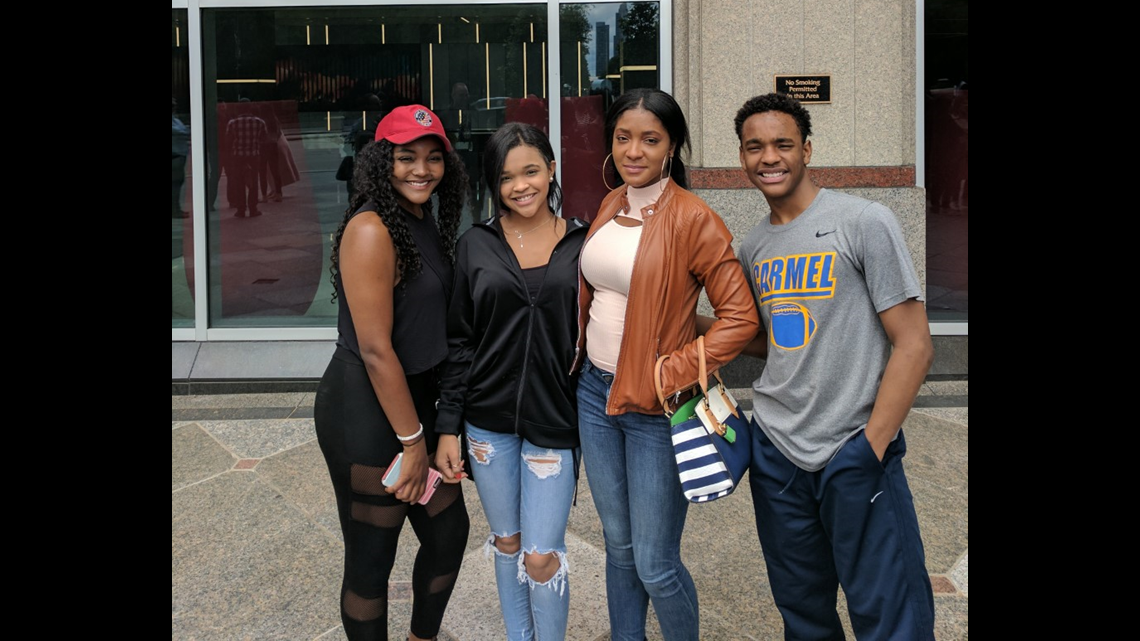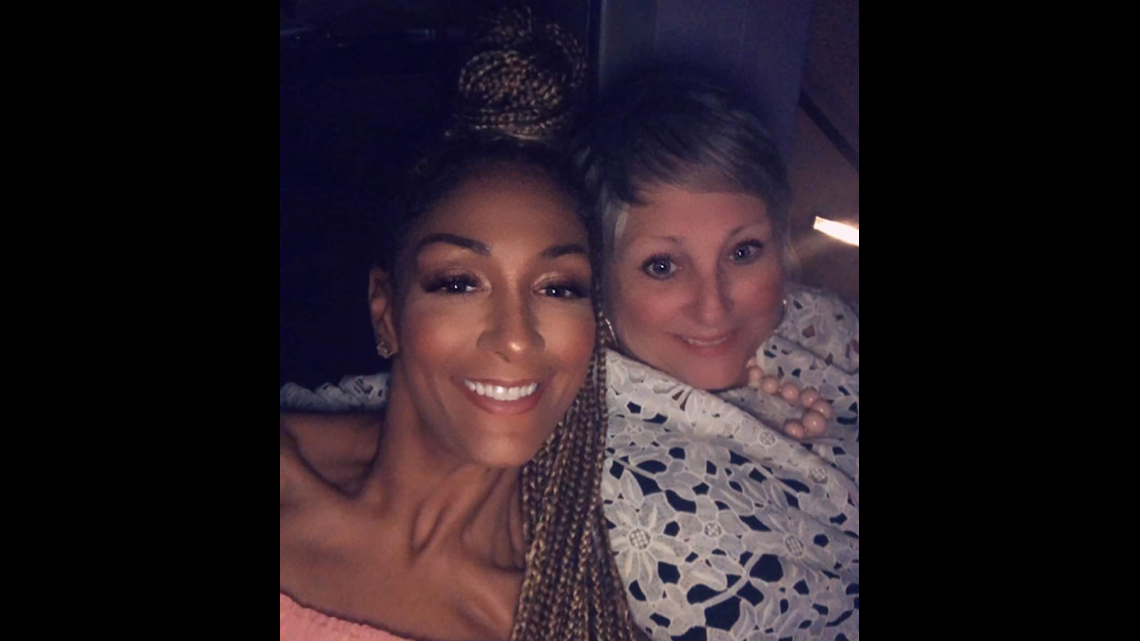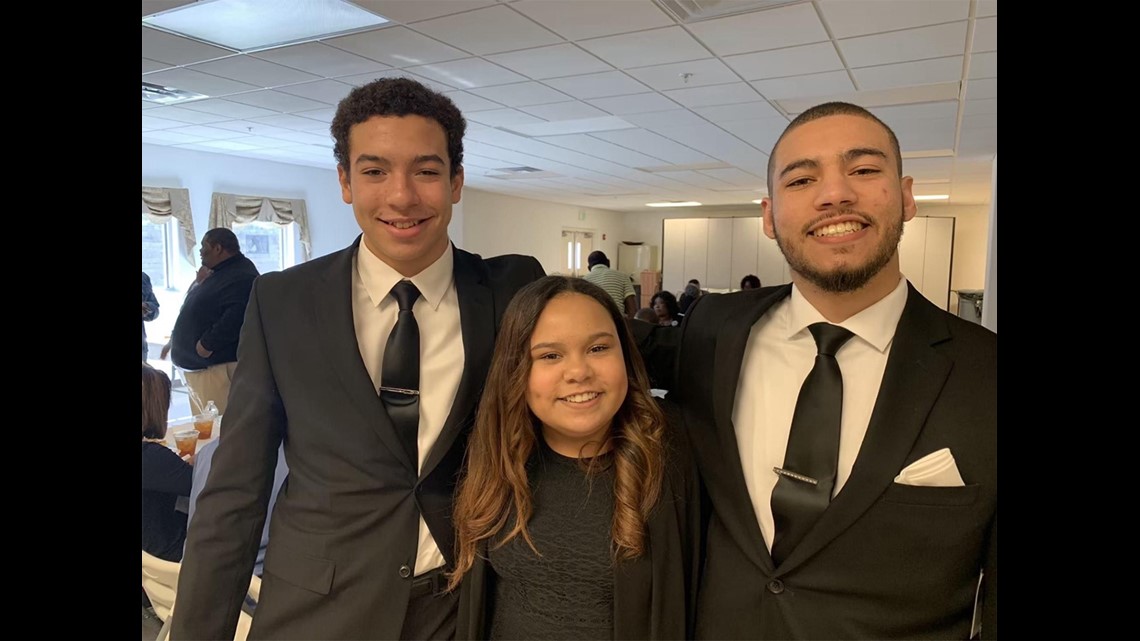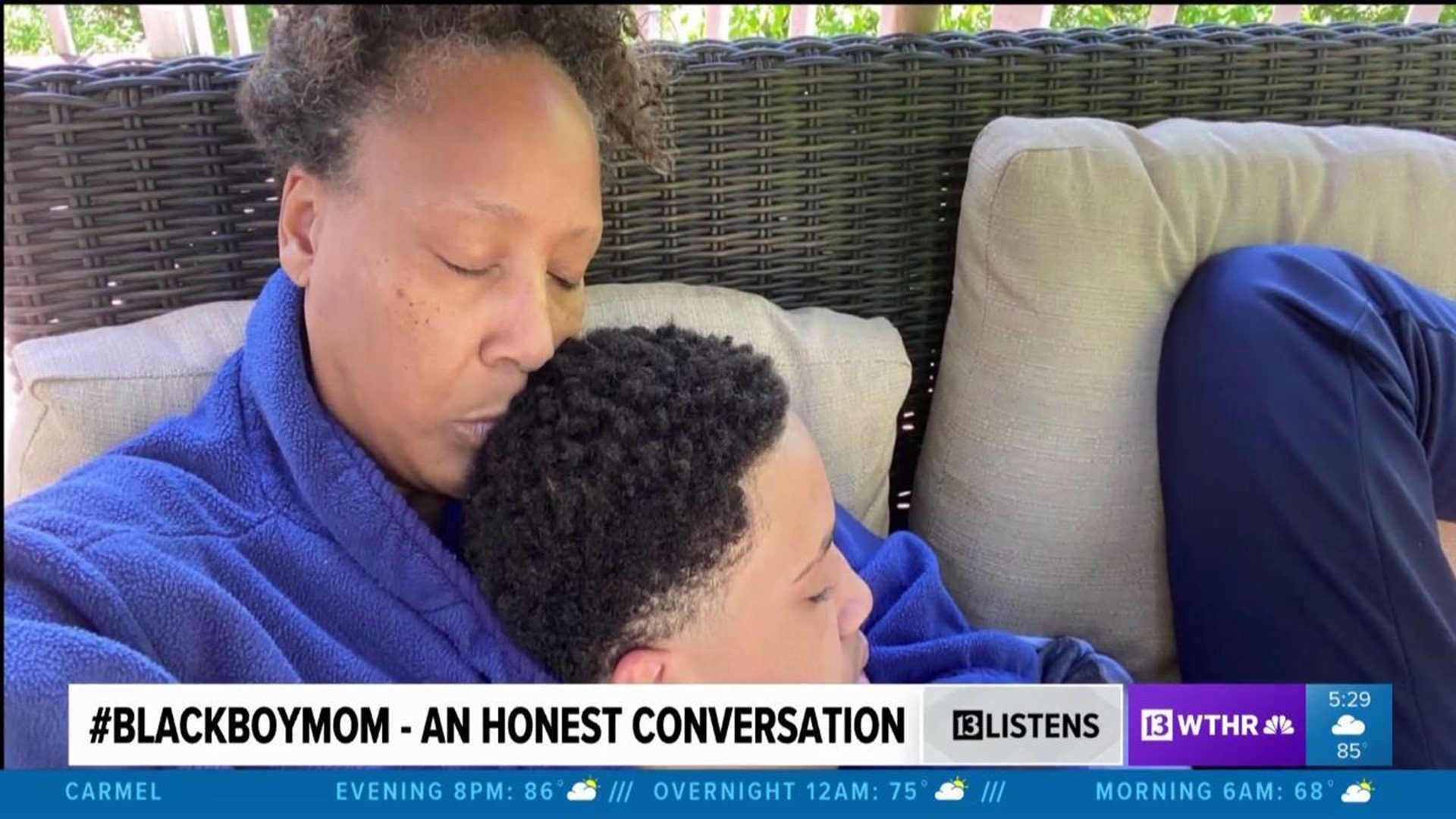INDIANAPOLIS (WTHR) — “Hold your breath for just two minutes and see if you can do that," Jennifer Rogers said, a black mother who has a 27-year-old son. "This was eight minutes and 47 seconds. Everyone saw it."


“I can’t breathe," Rhonda Chin, a mother of four said. "That means I’m invisible. You don’t see me."
Chin's daughters are ages 31, 24, 19, and her son is an 18-year-old who just graduated from Crispus Attucks High School.
Coeli Baker is a white mother whose three bi-racial children include two boys, ages 23 and 17, and a 13-year-old daughter.
“When we all look at that video we all see a black man, and anybody who sees anything differently needs to challenge their own honesty," Baker said.
“I feel very hurt, I feel very frustrated and I feel very fearful for my son and my daughters," said Chin.
Kathryn Crowner said when she spoke to her friend of nearly 50 years who said she didn't believe there was a difference between how black people and white people are treated.
"In real life, she unfriended me because she didn’t believe it," Crowner said. "Well now she sees with her own eyes.”
The talk


MaryAnn Short is a black mother of four boys who range in age from 19 to 30. She said "the talk" began as they got older and got their driver's licenses.
"If you’re out there driving you can’t have a lot of people in the car; if you get stopped for any reason put the hands on the steering wheel, don’t reach for anything," she would tell her sons. "We would have those talks constantly because we wanted to make sure they came back home safely.”
Baker said she had the same talk with her son.
"On his 18 birthday with predominantly white friends in the car, (he) was racially profiled and pulled over by the sheriff’s office and he was horrified and terrified," she said. "He was terrified to reach to get the registration.”
Rogers recalled her son thinking she was a "mean mom" for telling him that he couldn't do what everybody else does.
When Crowner's daughter had the talk with her grandson when he was 13, he asked if they could move.
"This was numerous years ago, he said can we move to Hawaii where President Obama is born because he thought it wasn’t racist there," Crowner said.
Racial disparity
Chin and Short said they notice the racial disparity in the workplace.


"With work, I’ve always felt that I’ve got to be better than my counterparts," Short said. "I can’t just do my job. I’ve got to be exceptional, just to be viewed at the same level."
Crowner remembered an incident in 1976 where her and her husband's life were put at risk.
"My husband I was dropping him off at a trucking job after dark so that no one would see that I was white it was in Mooresville, the next time he went on the road, in the mountains, his brakes had been cut," she said. "... I do know that even though we try to protect our kids, we are absolutely powerless.”
Rogers said she's attempted to speak out but as soon as she voices racial injustice she gets pushback that she's using the "race card." Baker sees a similar pushback and encourages those with privilege to use it to change the system.


"You have to use it so you can share the burden to help people not be so exhausted to change the system and to change individuals," Baker said. “People who are white, the first thing, my responsibility is to listen. So just because I have bi-racial children and just because my husband is black, I need to know that does not make me a part of black culture. I get to partake of it, but it doesn’t make me understand what it’s like to be black in America. “
Silence is complicit
The women 13News' spoke to insisted that to be silent was to be complicit and that it was important to speak out:
“I will call you out. I don’t care if you’re the CEO, or whoever you are. I have done it over and over again," Crowner said. "I’ll do it nicely at first. I’ll check you."
Chin said that while it's great to speak up, action is necessary.
"It starts with what can I do," she said. "It means that I’m going to have to be uncomfortable having some of those courageous conversations."
National and worldwide protests
Protests have spread nationally and worldwide following the death of George Floyd to bring light to the injustice.
“Look at streets of New York, of Indianapolis," Chin said. "All of the different states. Everbody is banning together to say, you know what, enough is enough.”


The protesters are hoping to bring change to policy and the system as a whole.
"I think the conversations have started, I think we now have people paying attention, we’re now realizing that we cannot continue to have this systematic racism," Short said.
Rogers says “It’s about the citizens. It’s about Americans being heard to hold fast to our civil rights.”
And Baker said if you don't know what to say, acknowledge the experience and work to educate others.
A new movement and hope for the future
The women we interviewed said they feel like the conversation is changing, especially with the younger generation.
“This generation at least of my black children and their friends are saying, no, I’m not going to stay in a room and listen to this kind of racism, or listen to these kinds of jokes, or watch this on Snapchat," Baker said. "They’re demanding that that stop.”
“There has to be change, and we can start, everybody, we the people of the United States of America," China said. "It starts with us. It starts in your home. It starts with education, it starts with you know what having the dialogue. It starts with people that don’t’ look like me reaching out, trying to understand their perspective. It’s a change of the heart, because the heart controls the mind, it controls the extremities, it controls all parts of your body.”
13News' Anchor Andrea Morehead said she hopes this is the beginning of a transparent dialogue about race relations so that everyone can truly feel free from the shackles of bias, prejudice and disparate treatment to make a UNITED States of America.

